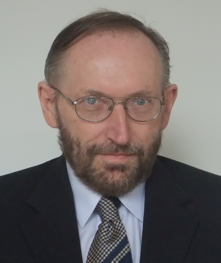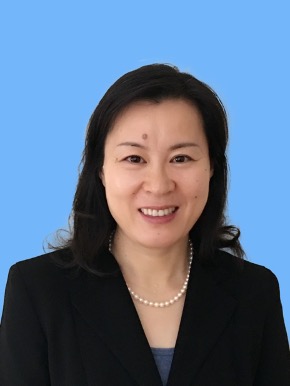1st Keynote Speaker

Prof. Witold Pedrycz
IEEE Fellow
University of Alberta, Canada
Title: Federated Learning of Structure Discovery and Rule-Based Systems With Privacy Constraints
Abstract: Quite often in real-world environment, data can be available only locally coming with strict constraints imposed on their usage beyond individual data islands. Such restrictions constitute genuine conceptual and algorithmic challenges when it comes to solving problems of global data analysis and the development of global models. A lot of pursuits located in this realm fall under the umbrella of federated learning where this learning paradigm is linked with the computing ideas of cloud computing.
The discovery of the structure of data to be realized at the global level becomes highly demanding given the required privacy of attributes to address the existing challenge, a number of ways of conceptualization of the collaborative clustering are discussed. In spite of the diversity of the ensuing optimization mechanism, it is worth stressing that building a global structure is completed at a higher level of abstraction. Subsequently, it is shown that a sound conceptual setting involves concepts of information granules and mechanisms of Granular Computing. The quality of constructed relationships is also analyzed at the level of granular constructs. The accommodation of privacy constraints in the design of rule-based architectures with the rules assuming the form “if condition is Ai then y=fi(x), i=1,2,...,c is elaborated in detail. The attributes not publicly available are expressed through information granules Ai built through collaborative clustering whereas remaining attributes (x) are used in the construction of the local functions. A way of forming the rules through unsupervised federated learning is investigated along with the detailed algorithmic developments. A granular characterization of the obtained model formed by the server vis-a-vis data located at the level of individual clients is discussed and a number of case studies is studied.
Bio: Witold Pedrycz (IEEE Life Fellow) is Professor and Canada Research Chair (CRC) in Computational Intelligence in the Department of Electrical and Computer Engineering, University of Alberta, Edmonton, Canada. He is also with the Systems Research Institute of the Polish Academy of Sciences, Warsaw, Poland. Dr. Pedrycz is a foreign member of the Polish Academy of Sciences and a Fellow of the Royal Society of Canada. He is a recipient of several awards including Norbert Wiener award from the IEEE Systems, Man, and Cybernetics Society, IEEE Canada Computer Engineering Medal, a Cajastur Prize for Soft Computing from the European Centre for Soft Computing, a Killam Prize, a Fuzzy Pioneer Award from the IEEE Computational Intelligence Society, and 2019 Meritorious Service Award from the IEEE Systems Man and Cybernetics Society. His main research directions involve Computational Intelligence, fuzzy modeling and Granular Computing, knowledge discovery, pattern recognition, data science, knowledge-based neural networks among others. Dr. Pedrycz is involved in editorial activities. He is an Editor-in-Chief of Information Sciences, Editor-in-Chief of WIREs Data Mining and Knowledge Discovery (Wiley), and Co-editor-in-Chief of Int. J. of Granular Computing (Springer) and J. of Data Information and Management (Springer).
2nd Keynote Speaker

Prof. Xiuzhen Cheng
IEEE Fellow
Shandong University, China
Title: Blockchain and Zero-trust Computing
Abstract: Blockchain has emerged as a new technology to enable multiple agents to complete transactions that require strong security and reliability, even though these agents do not trust each other and the media supporting their interactions is not trustworthy. Such a property drives zero-trust computing to come into being, which is a computing paradigm supporting collaborative computing services in a zero-trust environment. In this talk, we first introduce zero-trust computing, using the evolutions of cryptocurrency, web, and computing paradigms as examples to demonstrate why zero-trust computing plays fundamental and critical roles in enabling the exciting applications driven by the next-generation Internet technologies in the coming years. Then we talk about the open challenges of blockchain and zero-trust computing whose solutions can nurture various zero-trust based applications that are expected to burgeon in the near future. Finally we report our effort in blockchain and zero-trust computing, serving as a catalyst for further studies to advance zero-trust computing technologies and their applications.
Bio: Dr. Xiuzhen Cheng is a Distinguished Professor in School of Computer Science and Technology, Shandong University, China. From 2002 to 2020, she was a professor of Computer Science at School of Engineering and Applied Sciences (SEAS) in The George Washington University, USA. Dr. Cheng conducts research in the broad area of distributed and trusted computing, particularly in blockchain computing, edge computing, and IoT security. She was the recipient of the NSF CAREER award, SEAS Distinguished Researcher Award, and a few best paper awards.
Dr. Cheng is a Fellow of IEEE. She is the founder and steering committee chair of the International Conference on Wireless Algorithms, Systems, and Applications (WASA, launched in 2006), and the founding EiC of the SDU-Elsevier High-Confidence Computing Journal (launched in 2021). Dr. Cheng served/is serving on the editorial boards of several technical journals and the technical program committees of many professional conferences/workshops. She also chaired a few international conferences.

